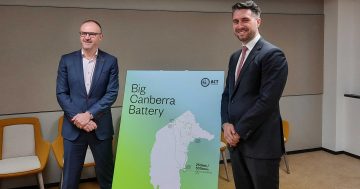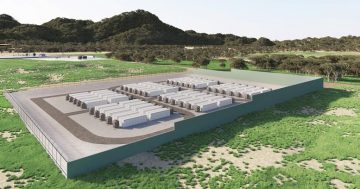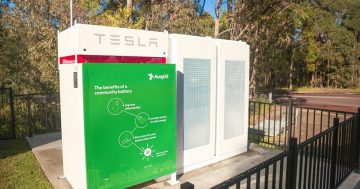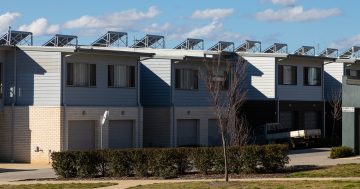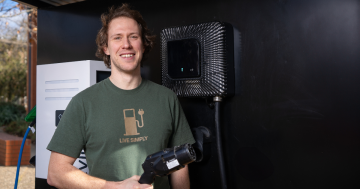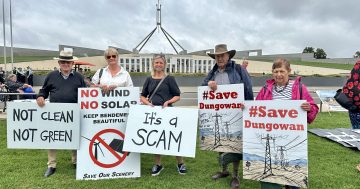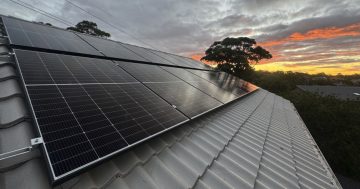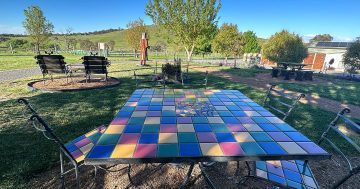
An artist’s impression of the Williamsdale Battery Energy Storage System. It will store enough renewable energy to power one-third of Canberra for two hours during peak demand. Image: ACT Government.
The $300-400 million Williamsdale Battery Energy Storage System will plug into the ACT electricity grid from early 2026, with construction now underway on the site adjacent to the solar farm.
A partnership between the ACT Government and global energy storage leader Eku Energy, the 250 megawatts BESS will be part of the Evoenergy distribution network. It will store enough renewable energy to power one-third of Canberra for two hours during peak demand.
The project uses an Australia-first revenue-sharing model in which the government will receive an expected $20-25 million a year from revenue generated by the Williamsdale BESS’s participation in the National Electricity Market.
In return, the government will pay Eku a quarterly payment, which is commercial in confidence, but the government does not have any upfront costs for the development.
Chief Minister Andrew Barr said at a sod-turning ceremony at the Williamsdale site that the model had potential for other government procurement.
“I think that will not only provide a good template for future ACT Government procurement, but a model that can be extended nationally,” he said.
Mr Barr said this investment not only supported the effectiveness and reliability of the energy network but also generated revenue for the community that could be reinvested in further renewable energy projects and community services.
Eku CEO Daniel Burrows said the project would provide grid security, delivering power almost instantaneously when needed.
“If we look at the transmission network and the distribution network, it needs to operate within certain technical parameters such as voltage frequency, so the battery can respond in milliseconds to provide those services into the grid to make sure it operates safely and reliably,” he said.
“What it also does is it stores energy when it’s abundant and makes it available when it is less abundant, so it supports the grid in making that energy available when it’s needed, and also in making sure the grid’s robust and there for us when we need it.”
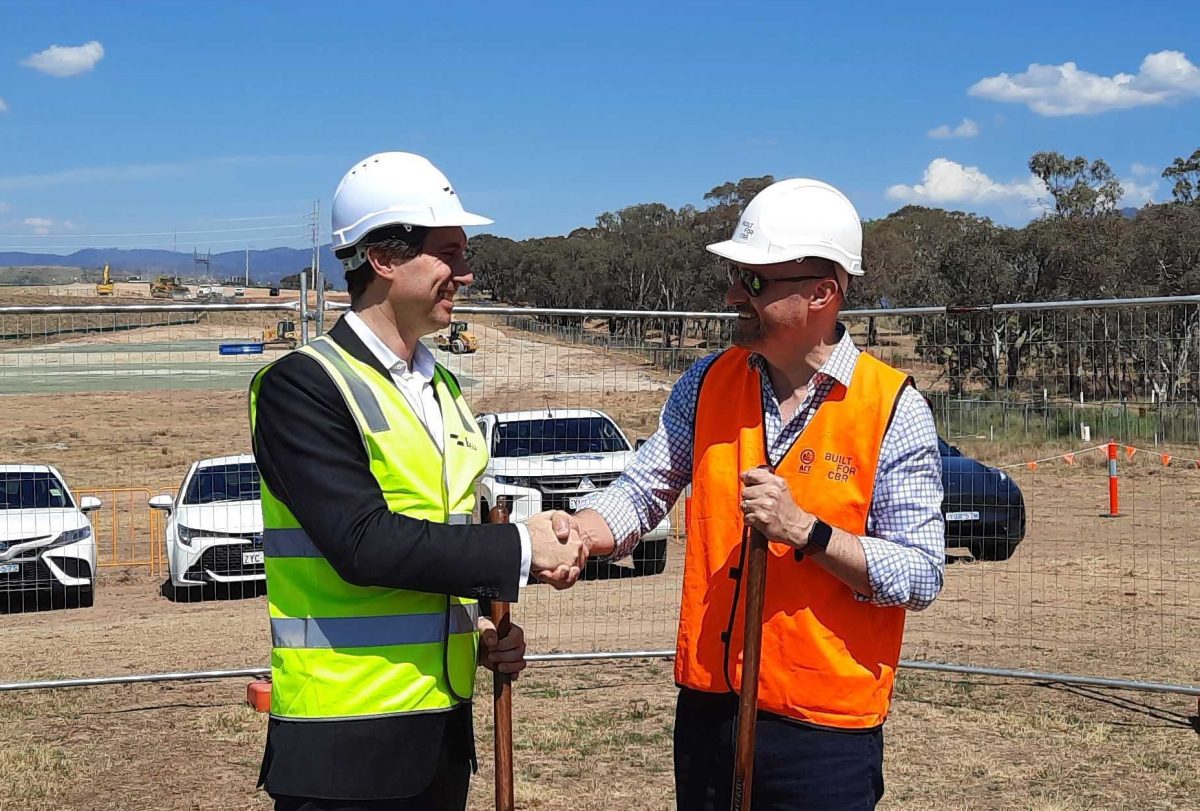
Eku Energy CEO Daniel Burrows and Chief Minister Andrew Barr after the sod-turning ceremony. The construction site is in the background. Photo: Ian Bushnell.
Mr Barr said the start of the Williamsdale BESS marked a milestone in the ACT’s commitment to a net-zero future and would be part of a wider ecosystem of batteries of varying sizes in the ACT.
He said the Canberra Big Battery would need to grow as demand for electricity increased and the ACT transitioned from gas to electric over the next couple of decades.
“It is clear to us that we will need to continue to procure more renewable energy, and we will need to continue to procure more battery storage systems, not only for our jurisdiction but to play our part in the National Energy Market,” he said.
Mr Burrows announced a Williamsdale BESS Community grants program to foster employment, support education, social connectedness and environmental initiatives through a $500,000 community fund that will be available for local, non-profit organisations. Applications were now open and on the BESS website.
Eku has also committed an additional $500,000 to the Australian National University’s battery storage and grid integration program to support research and development and enhance the uptake of projects.
“We believe this will further accelerate the ACT’s transition to a low-carbon economy,” Mr Burrows said.
“As a global business, we’re also particularly proud to be able to travel around the world and talk to other governments and partners about the wonderful work that’s happening here in Canberra and also the wonderful work that the ANU is doing that is very relevant and is leading on an international scale.”
Mr Burrows brushed off questions about the Coalition’s nuclear position and any market uncertainty it may be bringing.
“There’s a large amount of uncertainty and has been for a number of years,” he said again.
“We focus on the individual bottom-up business case for each of our projects, and what we do is we make sure that those projects are delivering the most cost-effective outcomes, and that’s the guiding principle we use in terms of opportunity selection and where we choose to invest.”
But Mr Barr said the Coalition’s policy made no difference to the need to shift to renewables.
He said coal-fired powered stations were coming to the end of their lives, and nuclear was decades away, if at all.
“It’s massively more expensive than this sort of storage solution,” he said.
“This provides cheaper energy, more reliable energy and generates a revenue return for the Territory, so I think it stands alone.”












